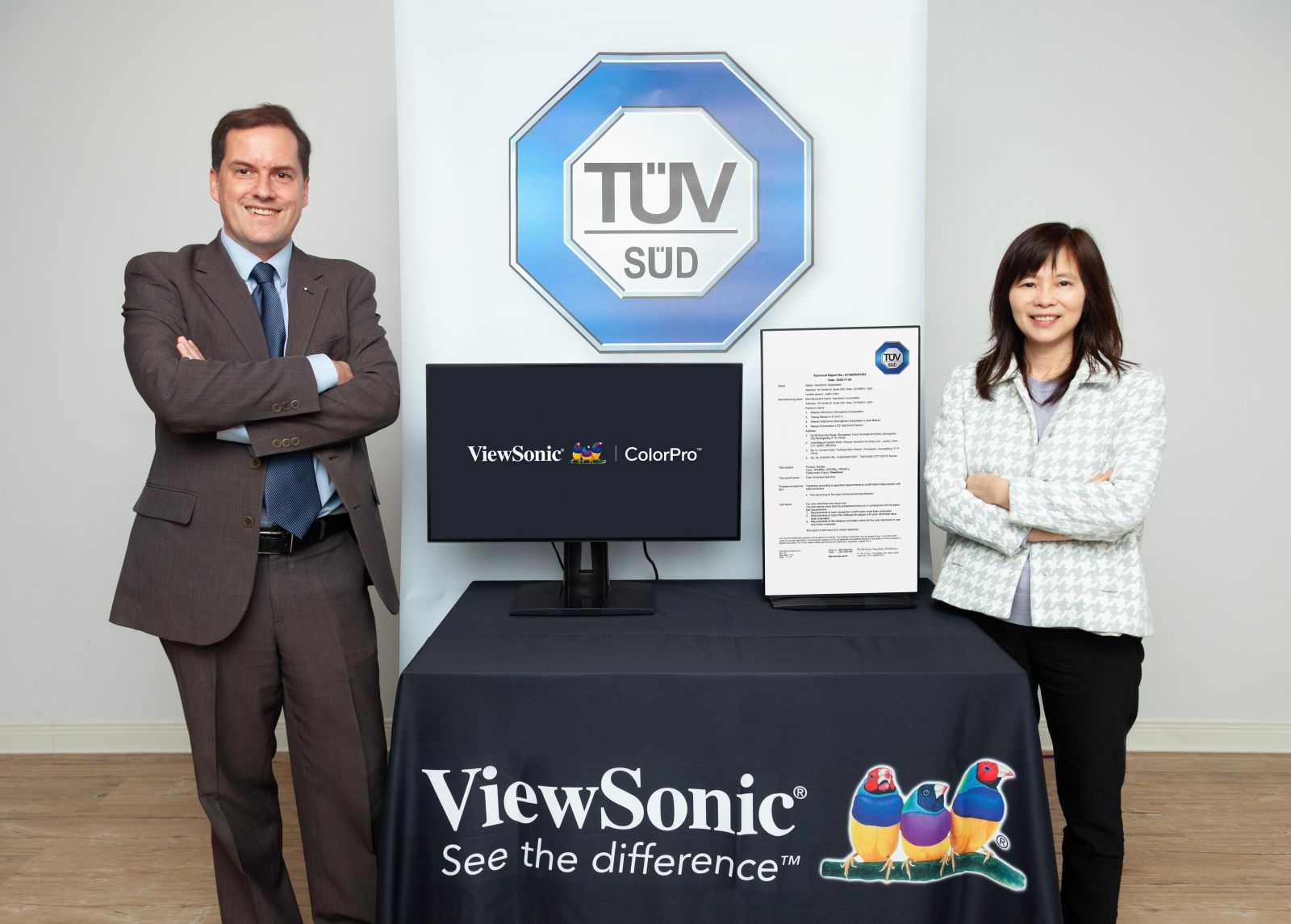17/12/2020

London, UK (December 17, 2020) – ViewSonic Europe Ltd., a leading global provider of visual solutions, and TÜV SÜD, the globally acclaimed safety and quality expert organisation, announced the world’s first TÜV SÜD testing of a colour blindness feature in monitors. In doing so, they have set a new test method for the electronics industry. ViewSonic’s colour blindness feature consists of two modes - colour filter mode for colour vision deficiency (CVD) users and simulation mode for creators to deliver a colour blindness friendly experience. This feature is available in ViewSonic’s professional ColorPro™ models VP2468a, VP2768a and VP3481a.
“ViewSonic is happy to partner with TÜV SÜD in developing this groundbreaking testing together. We are proud of the strides we have made in enhancing the user experience in the new world of high definition visual media,” said Bonny Cheng, COO at ViewSonic. “ViewSonic’s vision for the ColorPro series not only includes accurate colour representation, but also helps and assists with multimedia accessibility for CVD users. TÜV SÜD conducted rigorous tests on ViewSonic’s colour blindness feature including colour recognition confirmation, colour filter software and colour simulation to establish a high-quality testing method for the industry.”
“TÜV SÜD is focused on providing safety, security and sustainability solutions within organisations. TÜV SÜD and ViewSonic have taken the lead to define a new set of testing methods for the compatibility of monitors with colour vision deficiency features. This revolutionary approach helps ensure that user enhancement is being accurately evaluated. It is a first for any monitor brand. We were happy to work with our partner ViewSonic on such a groundbreaking feature,” said Alex von Mylius, Product Certification Director of TÜV SÜD Global Product Service Division.
CVD test subjects were selected by TÜV SÜD, using the Munsell 100 Hue Test that identifies the zones of colour confusion (Protanopia, Deuteranopia or Tritanopia). The subjects then tested ViewSonic’s monitors and exclusive colour blindness software. Compared to the traditional approach which only alters the overall combination of colours, the ViewSonic colour blindness feature algorithm alters most of the colours that are not identifiable by CVD users. The test result showed ViewSonic’s colour blindness feature improved the ability of the CVD subjects to successfully identify colour differences from 70-75% (on average) to 90%.
Creating a Colour Blindness Friendly Experience
The colour filter mode caters to users with CVD to help them identify images with enhanced colour visibility. The CVD user can activate the colour filter function via vDisplayManager and choose between two levels, the normal colour filter and advanced setting filter. Both levels assist CVD users to customise the display to enhance colour visibility and identify a wide range of coloured graphics more accurately. The advanced setting filter can also be used to change the contrast level and set the best filters for the user’s most comfortable viewing experience.
Another mode, the colour blindness simulation, allows graphic designers to envisage their creations as they would be seen by a CVD user and adjust accordingly. This innovative technology benefits creators, designers, teachers, especially in preschool, as well as CVD users. CVD users can have a more friendly viewing experience as the content is created with the simulation mode.
The colour blindness feature is now available in ViewSonic’s professional ColorPro monitor series - VP2468a, VP2768a and VP3481a. The ColorPro series serves as the ideal solution for creative work, such as photography, design, and video editing. They deliver colour-accurate, true-to-life images with industry colour standards including sRGB, calibration, and uniformity.
About TÜV SÜD
Founded in 1866 as a steam boiler inspection association, the TÜV SÜD Group has evolved into a global enterprise. More than 25,000 employees work at over 1,000 locations in about 50 countries to continually improve technology, systems and expertise. They contribute significantly to making technical innovations such as Industry 4.0, autonomous driving and renewable energy safe and reliable.